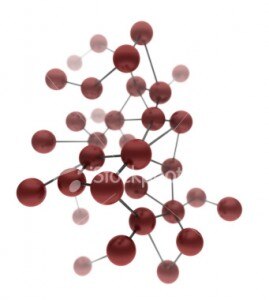You may have heard the term “free radicals” in conjunction with products that offer antioxidant support. But what are they? And what can they do to your body?
Free radicals are highly reactive oxygen molecules generated in the body as the result of normal metabolic processes, like breathing or converting food into energy. They also result from exposure to environmental factors like smoke, pollution, UV radiation and poor diet (especially fried foods).
Once formed, free radicals are unstable because they are missing an electron. In a frantic attempt to stabilize their molecular structure, free radicals will try to “steal” electrons from nearby molecules (usually healthy cells), damaging them in the process. This process can also start a chain reaction, in which healthy cells actually become free radicals after losing an electron and try to stabilize themselves by damaging other cells.
How can antioxidants stop this dangerous cycle and defend against these harmful molecules? Antioxidants are able to donate electrons to free radicals, preventing them from damaging healthy cells and neutralizing the threat before it gets out of hand.
While the body does manufacture its own antioxidants, your cells may experience a constant daily attack from free radicals as a result of strenuous exercise, pollution and poor diet. It’s a good idea to regularly replenish your antioxidant supply by consuming fresh fruits, veggies, beans and nuts. Notable antioxidant-rich foods include berries, broccoli, tomatoes, garlic, spinach, pecans and pinto beans.

